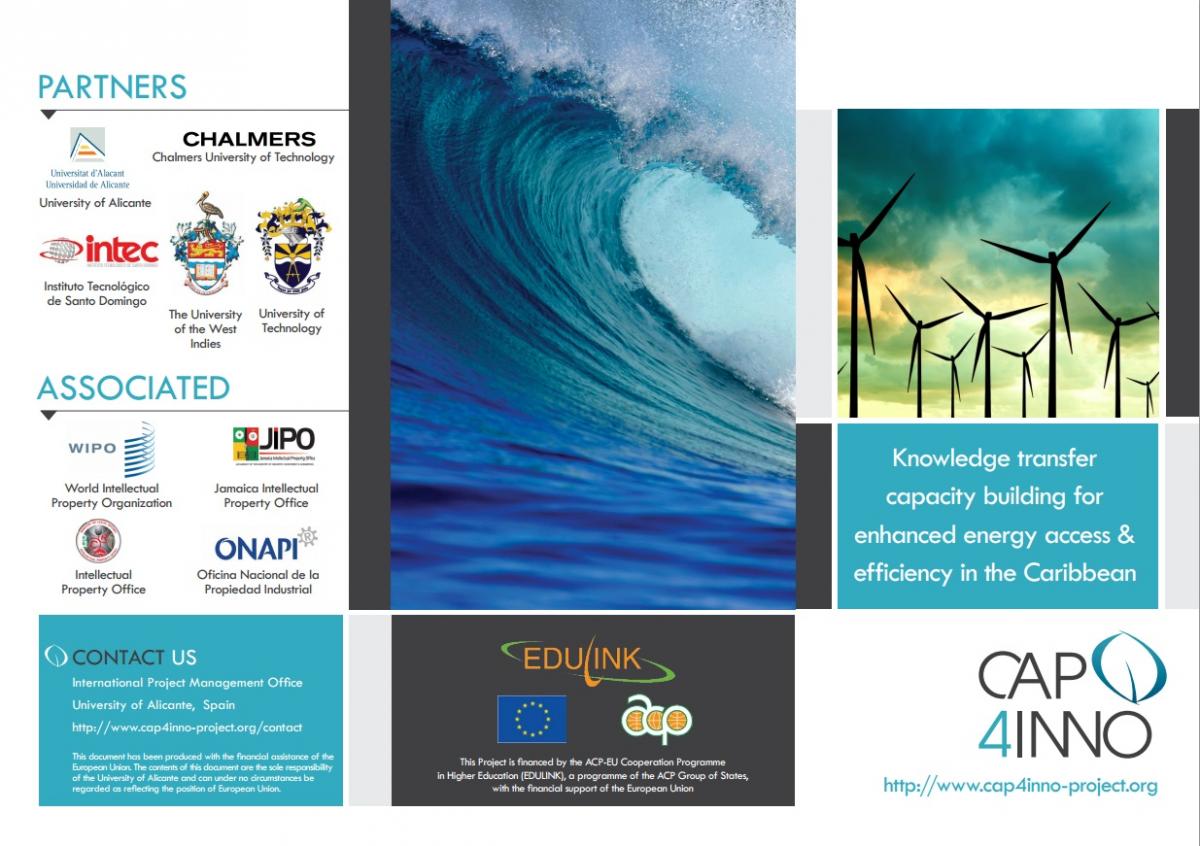The project “Knowledge transfer capacity building for enhanced energy access & efficiency in the Caribbean (Cap4inno)” is co-financed by the European Commission through the ACP Edulink programme.
Cap4inno aims to provide a solution to the challenges of energy access & efficiency through building the capacities of Caribbean HEIs to promote knowledge transfer, and offer relevant training programs to students and professionals of the sector
Overall Objective:
To build capacities for transfer and exploitation of innovative solutions and modern technologies for enhanced energy access and efficiency in the Caribbean, in line with socio-economic regional development priorities.
Specific Objectives:
1. To provide the labour market & economy with high level skills required to enhance energy access & efficiency and foster the use of modern technologies, through modernising curricula and training offer in 3 Higher Education Institutions serving 18 countries in the Caribbean
2. To strengthen inter-institutional cooperation among HEIs, enterprises & governments in the Caribbean, and foster innovation & knowledge transfer, through networking & policy support actions.
Outcomes & Outputs
The project addresses both institutional capacity building and improvements in academic quality and relevance in the region, leading to
- Increased awareness on qualifications needed in the energy sector and training needs of staff and students to build capacities for a sustainable energy sector
- Upgraded qualifications of partner HEI academic & management staff with a view to providing high-level skills required for capacity development in the energy sector
- Improved institutional frameworks, modernised offer of academic and research programmes, and amplified lifelong learning opportunities for professionals, including via distance learning
- Reinforced inter-institutional networking and cooperation among key actors of the innovation system: HEIs, enterprises, and government for enhanced energy access among the less favoured groups of Caribbean societies
- Enhanced impact and promoted regional up-take of the pilot transversal courses in other faculties and HEIs in the Caribbean

